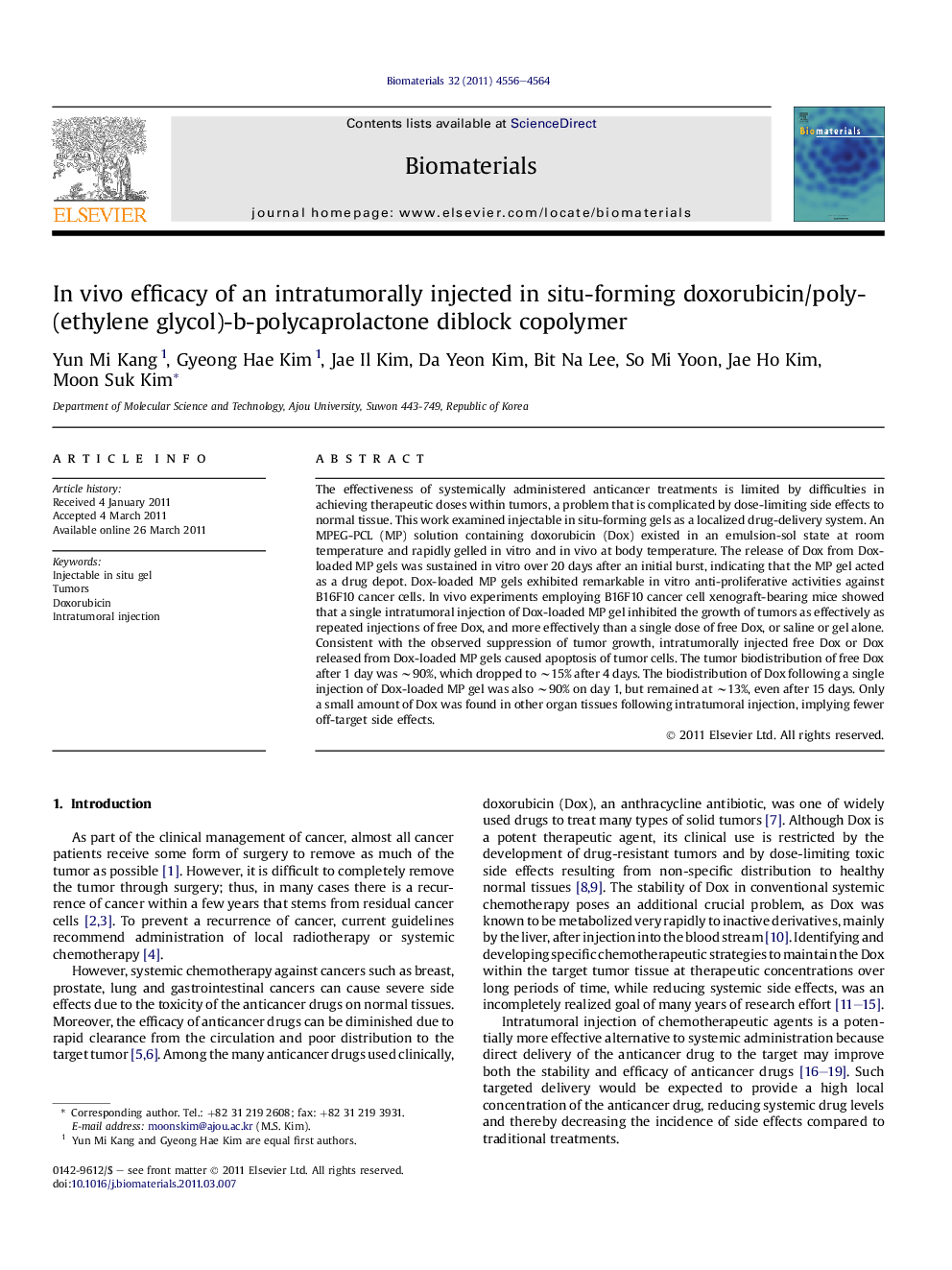| Article ID | Journal | Published Year | Pages | File Type |
|---|---|---|---|---|
| 7688 | Biomaterials | 2011 | 9 Pages |
The effectiveness of systemically administered anticancer treatments is limited by difficulties in achieving therapeutic doses within tumors, a problem that is complicated by dose-limiting side effects to normal tissue. This work examined injectable in situ-forming gels as a localized drug-delivery system. An MPEG-PCL (MP) solution containing doxorubicin (Dox) existed in an emulsion-sol state at room temperature and rapidly gelled in vitro and in vivo at body temperature. The release of Dox from Dox-loaded MP gels was sustained in vitro over 20 days after an initial burst, indicating that the MP gel acted as a drug depot. Dox-loaded MP gels exhibited remarkable in vitro anti-proliferative activities against B16F10 cancer cells. In vivo experiments employing B16F10 cancer cell xenograft-bearing mice showed that a single intratumoral injection of Dox-loaded MP gel inhibited the growth of tumors as effectively as repeated injections of free Dox, and more effectively than a single dose of free Dox, or saline or gel alone. Consistent with the observed suppression of tumor growth, intratumorally injected free Dox or Dox released from Dox-loaded MP gels caused apoptosis of tumor cells. The tumor biodistribution of free Dox after 1 day was ∼90%, which dropped to ∼15% after 4 days. The biodistribution of Dox following a single injection of Dox-loaded MP gel was also ∼90% on day 1, but remained at ∼13%, even after 15 days. Only a small amount of Dox was found in other organ tissues following intratumoral injection, implying fewer off-target side effects.
